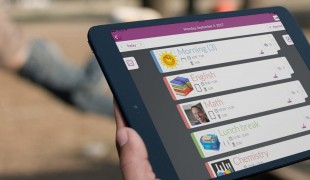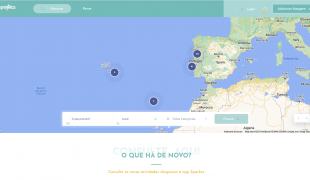- 3338
- 313
- 9
- 9
- 0
- Help Ukraine
About the solution
It is estimated that between 10,000 and 20,000 seriously ill children need an intravenous (IV) line or catheter each year, just in Australia.
This was the stacking reality of Gold Coast boy, Oliver Glover. He was born premature, with a bowel obstruction, which lead him to go into surgery right after his birth and lose most of his small bowel in this process. He spent the first eight months of his life in hospital, which meant that he needed to get a central venous catheter in his chest, which provided him with Total parenteral nutrition (TPN) for six nights a week.
The parents of little Oliver and the hospital he was staying on knew that IV lines were a challenging experience for many families who suddenly found themselves on a steep learning curve, which for them meant being not very literate about health care sometimes, to very quickly managing and being aware of the vitality of this device.
To help parents and carers to manage, experts at Griffith University and Children's Health Queensland worked with Oliver's parents, and many others, in order to develop what they said was a world-first app, called the IV Passport. The app contains the child's IV history, how and when to change dressings, medical appointment reminders, and advice about caring for the IV. This means that if things go wrong in the middle of the night, the parents have accurate and reliable resources that they can troubleshoot.
The information in this app is private but can be shared with hospitals, GPs or schools, if the patient wishes.
This story was adapted from https://www.abc.net.au/news/2021-06-01/brisbane-app-sick-children-manage...
The images were taken from https://www.abc.net.au/news/2021-06-01/brisbane-app-sick-children-manage..., as we do not own any of them.
This solution shall not include mention to the use of drugs, chemicals or biologicals (including food); invasive devices; offensive, commercial or inherently dangerous content. This solution was not medically validated. Proceed with caution! If you have any doubts, please consult with a health professional.
DISCLAIMER: This story was written by someone who is not the author of the solution, therefore please be advised that, although it was written with the utmost respect for the innovation and the innovator, there can be some incorrect statements. If you find any errors please contact the patient Innovation team via info@patient-innovation.com
-
-
433
-
0
-
4838

René, a father and careiver, found a way to improve his son's quality of life by improving his support aid- Mobilize me.
COMMUNICATION: Communicating, whether by speaking, listening, or other means
(SELF)-CARE: EATING: Eating independently.
(SELF)-CARE: HYGIENE: Maintaining personal hygiene
CAREGIVING
Autism
App (Including when connected with wearable)
Anxiety
Difficulty concentrating or making decisions
Social withdrawal or isolation
Depressed Mood
Irritability or anger outbursts
Loss of interest or pleasure in activities (anhedonia)
Racing thoughts
Promoting self-management
Managing Neurological Disorders
Promoting inclusivity and social integration
Enhancing Mental Health
Caregiving Support
Pediatrics
Psychiatry
Denmark
-
-
-
575
-
0
-
7036

Team develops app to help young people coping with grief
CAREGIVING
Video gaming
Depressive Disorders (Major Depression, Childhood Depression, Postpartum Depression)
App (Including when connected with wearable)
Videogame
Anxiety
Social withdrawal or isolation
Depressed Mood
Irritability or anger outbursts
Loss of interest or pleasure in activities (anhedonia)
Panic attacks
Feelings of guilt or worthlessness
Suicidal thoughts or behaviors
Fatigue
Sleep disturbances
Promoting inclusivity and social integration
Enhancing Mental Health
To improve Treatment/Therapy
Raise awareness
Caregiving Support
Child and Adolescent Psychiatry
Pediatrics
Psychiatry
Public Health
United Kingdom
-
-
-
306
-
0
-
2945

Sparkzz is webapp created by a group of parents, weary of spending hours researching and organising activities for their children
CAREGIVING
COMMUNICATION: Communicating, whether by speaking, listening, or other means
Antisocial Behaviour
Social Media
Website
App (Including when connected with wearable)
Strategy/Tip
Social withdrawal or isolation
Promoting self-management
Promoting inclusivity and social integration
Raise awareness
Caregiving Support
Child and Adolescent Psychiatry
General and Family Medicine
Pediatrics
Psychiatry
Portugal
-
 en
en